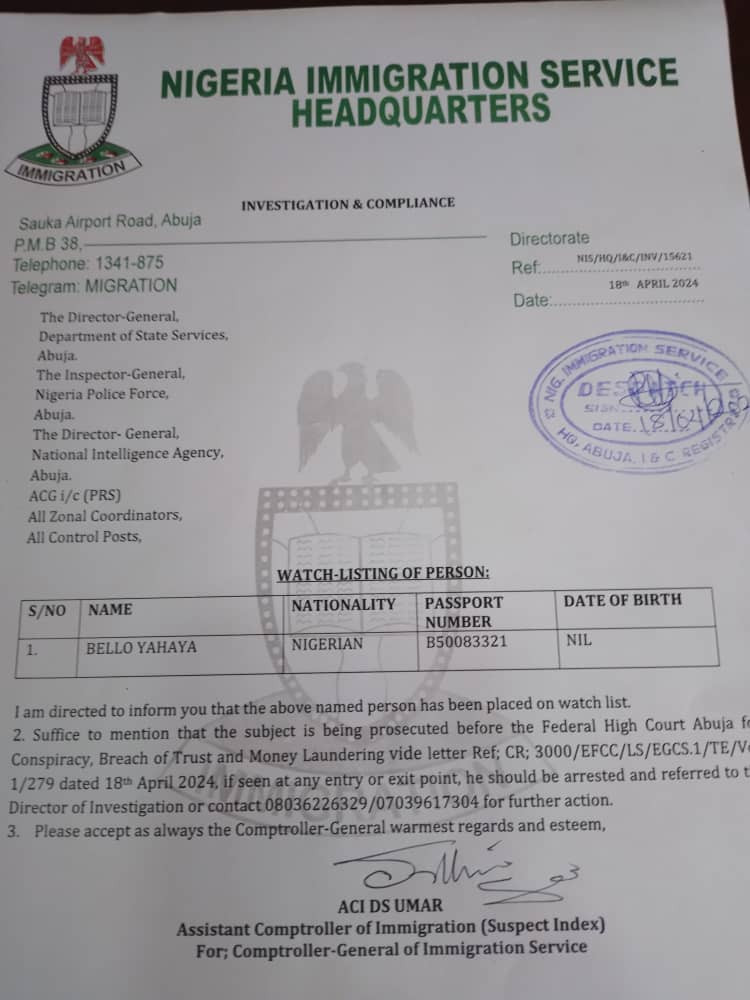News
ITF Unveils 2022 – 2025 Strategic Policy Direction For Vocational Skills Program
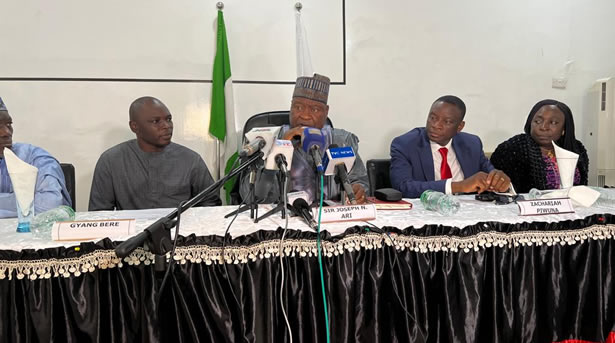
The Industrial Training Fund formally unveil our strategic policy direction for 2022 – 2025.
This is contained in a statement issued to Journalists by the Director-general/Chief Executive of the Industrial Training Fund, Sir Joseph Ari, at a media briefing in Jos, Monday. adsbygoogle || []).push({}); adsbygoogle || []).push({});
According to the ITF Boss, “This Strategic Policy Direction is the third of such plans by the incumbent administration in the Industrial Training Fund (ITF). You will recall that on assumption of office in 2016, we unveiled the ITF Reviewed Vision: Strategies for Mandate Actualization.”
“The plan, which was initially slated to terminate in 2022, was, however, reviewed in 2020 to address gaps that were identified in the course of its implementation, and for us to appropriately respond to the negative impact of the COVID-19 Pandemic on our numerous clients.”
He reiterated that, ”While it lasted, the plan enabled the ITF to aggressively address service challenges by computerizing our operations, tackling infrastructural challenges to expand access to Nigerians desirous of acquiring skills, and generally address a gamut of other strictures that were impinging on our ability to effectively discharge our mandate for National economic growth and development and the general good of the Nigerian people.”
He however, lamented that, “Despite the numerous achievements recorded by the Fund on account of these initiatives, we have realized that more needs to be done if we must fully tackle the numerous socio-economic problems that are bedevilling us as a Nation.”
He further stated that, “given the nature of your profession, you should be acutely aware that unemployment in Nigeria today is at over 33% as over 23 million Nigerians that are desirous to work cannot find jobs, mostly because of the absence of requisite skills.
“Poverty is equally on the rise with some estimates placing the number of Nigerians that are living in poverty to be over 90 million. In the face of all these, our population has continued to soar with the World Bank estimating that Nigeria might hit 216 million by the end of this year.
“Equally worrisome is the spectre of the Out of School Children, which according to the United Nations Children Fund (UNICEF) is projected to be over 18.5 million.”
“It is based on the above and in line with our mandate of Developing a vast pool of skilled manpower sufficient to meet the needs of the public and private sectors of the national economy coupled with resolutions at the recently concluded ITF National Skills Summit in Abuja that we found it imperative to review and refocus our strategies to address the above challenges and to meet the skills requirement of the nation in line with global best practices.
“In arriving at our strategies, we considered the need to scale up our activities to address the soaring unemployment and other socio-economic challenges by leveraging on our three Es (Experience, Expertise and Expansive network), deployment of technology for wider coverage and more flexible service delivery.”, Ari explained.
The new policy framework, which has as its theme: Re-Engineering Skills for Sustainable Development according to Ari, has external and internal components;
The ITF Boss further said that, “The internal components of the plan, which entail value reorientation, Industrial Development, Commercialization of ITF Facilities, Alternative Funding Window, Deployment and Promotion, Annual Budget Preparation and, Revenue Generation are intended to drive the external components of the new policy direction, which covers Standardization and Certification, Technical and Vocational Skills Training Programmes, Skills Intervention Programmes, Electronic and Virtual Learning and, Optimal Utilization of Skills Training Centres (STCs) and Vocational Wings (VWs). ”
According to him, he further revealed that, ”Standardization and Certification as the core aspects of the Mandate of the Industrial Training Fund, specifically, Section 2 subsections c and d of the ITF Act 2011, vest the ITF with the responsibility to set training standards in all sectors of the economy and monitor adherence; and evaluate and certify vocational skills acquired by apprentices, craftsmen and technicians in collaboration with relevant organisations.
In this area, the Fund will focus on ensuring full adherence to standards and regulating vocational skills training outfits through the accreditation of skills training centres and certification of all skills training in line with the Act.”
To actualise this, he said that, “the Fund will develop National Occupational Standards (NOS); Evaluate and certify apprentices, technicians and craftsmen; Train and certify learning and development professionals and; Create and maintain a data bank on skills training.”
Another key area of the Fund’s mandate, the ITF Boss said, “is the Technical and Vocational Skills programmes.
”Despite our commendable achievements in this regard, the Fund is set to refocus Technical and Vocational Skills Training for employability and economic growth by facilitating the institutionalization of the National Apprenticeship and Traineeship System (NATS).
”To actualize this, the Fund will collaborate with relevant public and private stakeholders for NATS; appraise and harmonize Apprenticeship programmes in line with set guidelines; conduct monitoring and evaluation and; design and develop technical and vocational skills programmes in line with the needs of the economy.
Saying that, “When fully in place, our plan will ensure a pool of highly skilled indigenous apprentices, technicians and craftsmen as well as an institutionalized National Apprenticeship and Traineeship System (NATS). ”
”Cognisant of the fact that technical skills are integral to the growth and development of societies across the globe, the incumbent management since its assumption of office in 2016, has been committed to equipping Nigerians with technical and vocational skills for employability and entrepreneurship.
”In this regard, to further address the problems of rising unemployment and under-employment, the Fund is re-engineering its skills intervention programmes through National Apprenticeship and Traineeship System (NATS).
”To achieve this, the Fund will register as a super certification centre; extend the duration of skills intervention programmes in line with NATS (six months for traineeship and one year for apprenticeship); procure and provide start-up packs for trainees in the succeeding year; design and develop skills intervention programmes; identify and engage accredited Skills Training Centres and certified craftsmen; implement, monitor and follow up intervention programmes and; evaluate and certify trainees.
“The intended outcome of this strategy is to have at least a total of 27,000 skilled and employable youths (18,000 trained youths under the NATS and 9,000 youth under the NISDP and other intervention programmes) and increased SMEs and Entrepreneurs to meet the Nation’s economic needs.”
“In this area, the Fund will provide the enabling environment to foster creativity, innovation, entrepreneurship and employability through its skills training centres by:
“Upgrading three of its skills training centres to Centres for Advanced Skills Training for Employment (CASTE)
“Embedding production Hubs, Skills/e-Hubs as well as creative and innovative hubs in its Skills training Centres and Vocational wings and,
“Utilizing existing skills training Centres to develop the capacity of technical instructors.
“In this regard, the Fund will equip Training Centres with state-of-the-art facilities, partner with relevant stakeholders for training placement as well as identify the competitive advantage of the centres for production purposes. We will also introduce instructors’ training in three (3) designated Skills Training Centres, advertise and deploy the Centre’s facilities and equipment for commercial use, engage trainees in the design and development of products and establish creative and innovative clinics. In addition, it will develop entrepreneurs and rename all Industrial Skills Training Centres as ITF Skills Training Centres (ITF STCs).
“With this strategy, we will now have three (3) Centres for Advanced Skills Training for Employment (CASTE) in Lagos, Kano and Jos as well as well-equipped training centres and vocational wings; train 450 Instructors annually; maximize investment and improve our revenue base.
“We believe that the new Policy framework if fully implemented will place us in better stead to fully implement our mandate and drive the achievement of Federal Government’s goals with particular reference to unemployment, poverty and their associated consequences.
“Our belief is premised on the fact that countries all over the world that had dealt with and have successfully solved the problems that we are currently confronting today, did it through a greater commitment to skills acquisition.
“For instance, to handle its youth bulge in the 70s and 80s, China under the leadership of Mao Zedong, Hua Guofeng and Zhao Ziyang who ruled the country during that period, invested heavily in the capacity development of its people. The outcome of this investment is evident today as China has moved from near third world to the 2nd largest economy and one of the most industrialised countries on earth.
“In Germany, about two decades ago, there was mass unemployment with roughly five million unemployed people and low employment rates to the extent that it was labelled “the sick man in Europe”.
“Today, nearly two-thirds of young Germans are enrolled in apprenticeships once they leave full-time education using the German Dual Vocational and educational training (DVT), nine out of ten young trainees get a permanent job at the end, with others being offered shorter-term contracts.
“Germany is now dubbed a job wonderland and European champion with regard to its high employment rates. We believe that we can replicate similar successes in Nigeria giving greater commitment to skills acquisition that is considered by many today as the currency of the 21st Century.”
Author Profile

- Prince Abdulrahman Obaje is a Media, Information and Computer Technology Consultant. A quintessential Journalist, online marketer, social media strategist, Mathematician and Computer Scientist is based in Abuja, Nigeria. He is the Founder and the Publisher of The Informavores!. You can reach me on +234 805 939 5252 or send i-witness report directly to me on news@informavores.com.ng.
Latest entries
 ArticleApril 24, 2024Preventing Fire Outbreak in Solar Power System Installation – Engr Ohida
ArticleApril 24, 2024Preventing Fire Outbreak in Solar Power System Installation – Engr Ohida PoliticsApril 23, 2024Alleged 80.2 Billion Fraud: EFCC May Loose Case Against Yahaya Bello – Ambassador Danjuma
PoliticsApril 23, 2024Alleged 80.2 Billion Fraud: EFCC May Loose Case Against Yahaya Bello – Ambassador Danjuma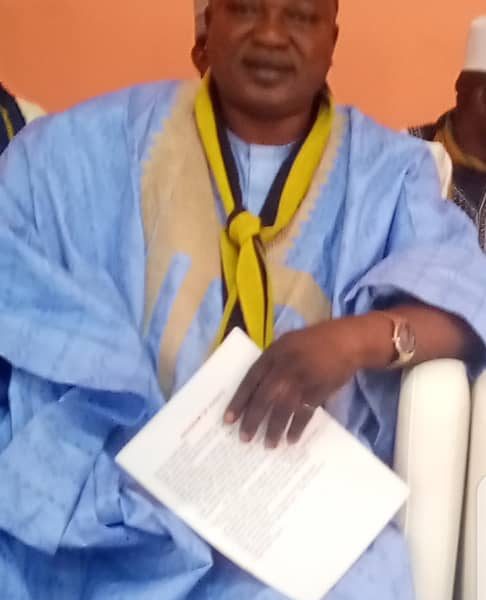 NewsApril 11, 2024Eid-El-Fitr: ICDA North Central Coordinator Urges Muslim Faithfuls To Abide By Ramadan Lessons
NewsApril 11, 2024Eid-El-Fitr: ICDA North Central Coordinator Urges Muslim Faithfuls To Abide By Ramadan Lessons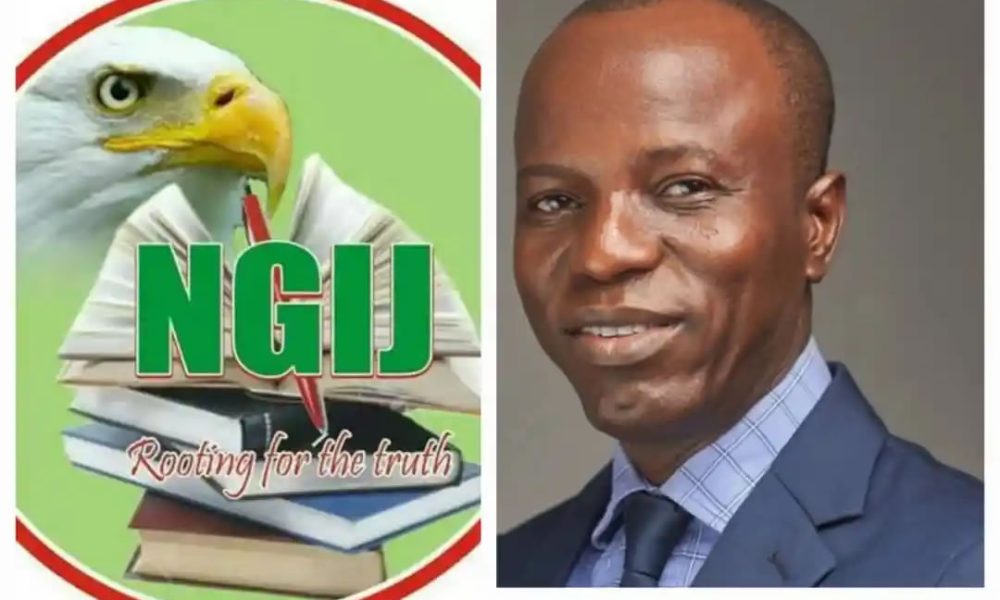 NewsMarch 20, 2024Investigative Journalists Group, NGIJ Hails Aderinokun on Appointment as Head of Media at Access Corp
NewsMarch 20, 2024Investigative Journalists Group, NGIJ Hails Aderinokun on Appointment as Head of Media at Access Corp
News
Alleged N80.2billion Money Laundering: EFCC Declares Immediate Kogi Ex-Governor Yahaya Bello Wanted
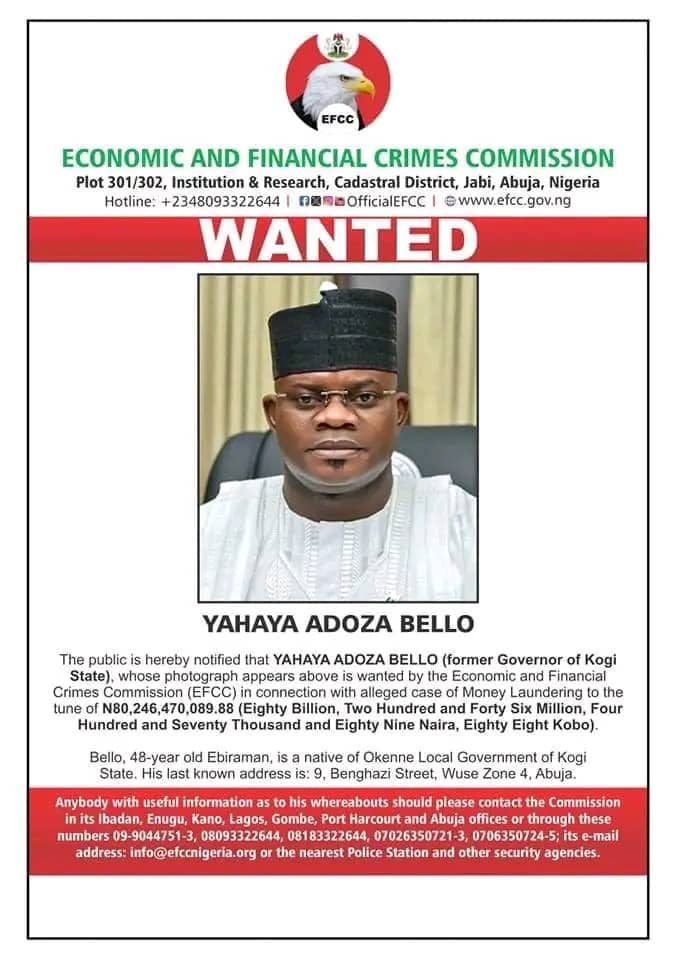
The Economic and Financial Crimes Commission, EFCC has declared the immediate Kogi State-ex-governor, Yahaya Adoza Bello, wanted over N80.2 billion financial crimes.
EFCC wrote this on its verified social media handle on Thursday evening where the photograph of the former governor was displayed with the inscription ‘WANTED’, that “Former Kogi State Governor, Yahaya Bello, is wanted by the EFCC for offences relating to economic and financial crimes to the tune of N80.
adsbygoogle || []).push({}); adsbygoogle || []).push({}); 2 Billion. Anybody with information as to his whereabouts should report immediately to the Commission or the nearest Police Station.”Informavores recalls that Bello was billed for arraignment before a Federal High Court sitting in Abuja this Thursday, April 18, 2024.
EFCC spokesperson, Dele Oyewale, had said Bello was to be arraigned before Justice Emeka Nwite alongside three other suspects, Ali Bello, Dauda Suleiman and Abdulsalam Hudu on 19- count charges bordering on money laundering to the tune of N80, 246, 470, 088.88 (Eighty Billion, Two Hundred and Forty Six Million, Four Hundred and Seventy Thousand and Eight Nine Naira, Eighty Eight Kobo).
Bello’s arraignment is coming on the heels of a warrant of arrest and enrolment order granted the EFCC by the court on Wednesday, April 17, 2024.
Count one of the charges reads: That you, Yahaya Adoza Bello, Ali Bello, Dauda Suliman, and Abdulsalam Hudu( Still at large), sometime, in February, 2016, in Abuja within the jurisdiction of this Honourable Court, conspired amongst yourselves to convert the total sum of N80, 246,470, 088.88 (Eighty Billion, Two Hundred and Forty Six Million, Four Hundred and Seventy Thousand and Eight Nine Naira, Eighty Eight Kobo), which sum you reasonably ought to have known forms part of the proceeds of your unlawful activity to wit, criminal breach of trust and you thereby committed an offence contrary to Section 18(a) and punishable under Section 15(3) of the Money Laundering (Prohibition) Act, 2011 as amended”.
Count 17 of the charges read: “That you Yahaya Bello between 26th July 2021 to 6th April 2022 in Abuja within the jurisdiction of this Honourable Court aided E-Traders International Limited to conceal the aggregate sum of N3, 081, 804,654.00 (Three Billion, Eighty One Million Eight Hundred and Four Thousand Six Hundred and Fifty Four Naira) in account number 1451458080 domiciled in Access BankPlc, which sum you reasonably ought to have known forms part of proceeds of unlawful activity to wit, criminal breach of trust and you thereby committed an offence contrary to Section 18(a), 15(2) (d) of the Money Laundering (Prohibition) Act, 2011 as amended and punishable under Section 15 (3) of the same Act.
Count 18 of the charges reads: “That you Yahaya Adoza Bello sometime in November 2021 in Abuja within the jurisdiction of this Honourable Court indirectly procured E-Traders international Limited to transfer the aggregate sum of $570,330.00 (Five Hundred and Seventy Thousand, Three Hundred and Thirty Dollars) to account number 4266644272 domiciled in TD Bank, United States of America which sum you reasonably ought to have known forms part of proceeds of unlawful activity to wit, criminal breach of trust and you thereby committed an offence contrary to Section 15(2) (d) of the Money Laundering (Prohibition) Act, 2011 as amended and punishable under Section 15( 3) of the same Act”.
The Commission’s attempt to execute the Warrant of Arrest lawfully obtained against Bello met stiff resistance on Wednesday, April 17, 2024. The security cordon around the former governor’s residence in Abuja was breached by the current Governor of Kogi State, Usman Ododo who ensured that the suspect was spirited away in his official vehicle. As a responsible law enforcement agency, the EFCC exercised restraint in the face of the provocation, waiting for his arraignment on Thursday, April 18, 2024.
The statement further said that, “It is needful to state that Bello is not above the law and would be brought to justice as soon as possible.”
Author Profile
Latest entries
 NewsApril 18, 2024Alleged N80.2billion Money Laundering: EFCC Declares Immediate Kogi Ex-Governor Yahaya Bello Wanted
NewsApril 18, 2024Alleged N80.2billion Money Laundering: EFCC Declares Immediate Kogi Ex-Governor Yahaya Bello Wanted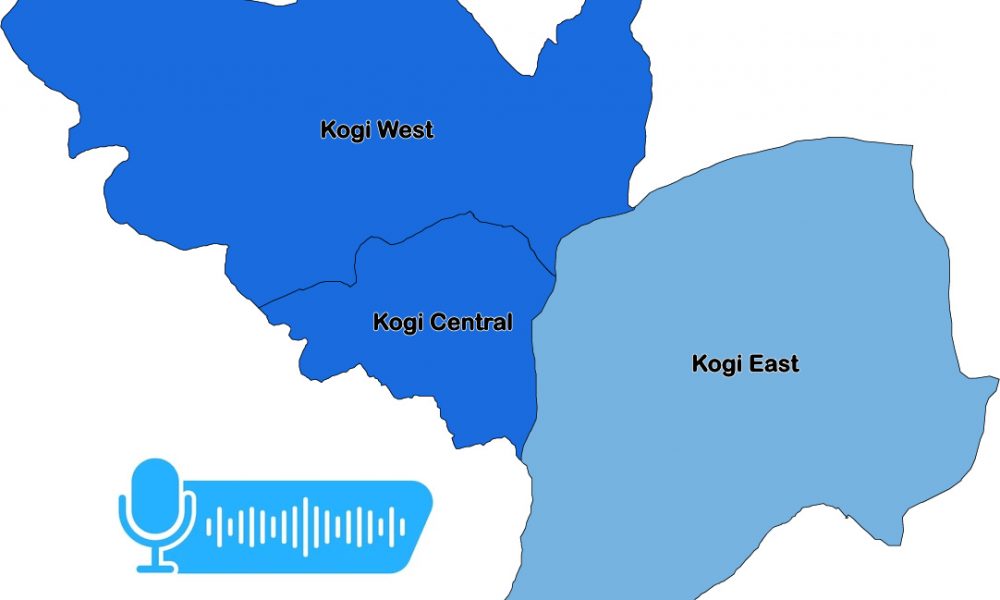 NewsNovember 6, 2023Another Massive Plan By APC To Rig Kogi Election Uncovered!
NewsNovember 6, 2023Another Massive Plan By APC To Rig Kogi Election Uncovered!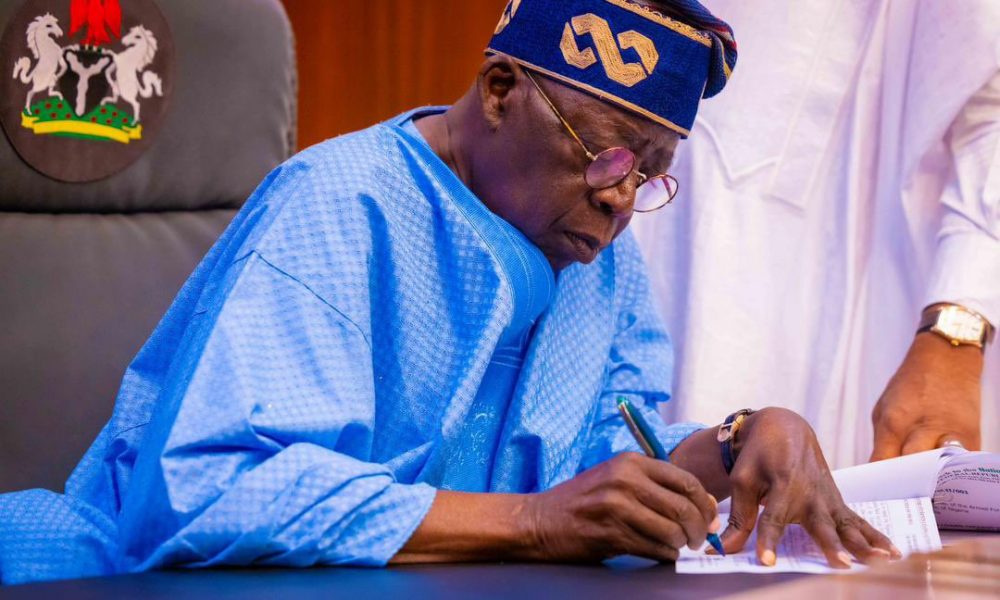 Food and AgricultureAugust 1, 2023Food Security: FG Started The Distribution of Subsidised Farm Inputs to Small Holder Farmers
Food and AgricultureAugust 1, 2023Food Security: FG Started The Distribution of Subsidised Farm Inputs to Small Holder Farmers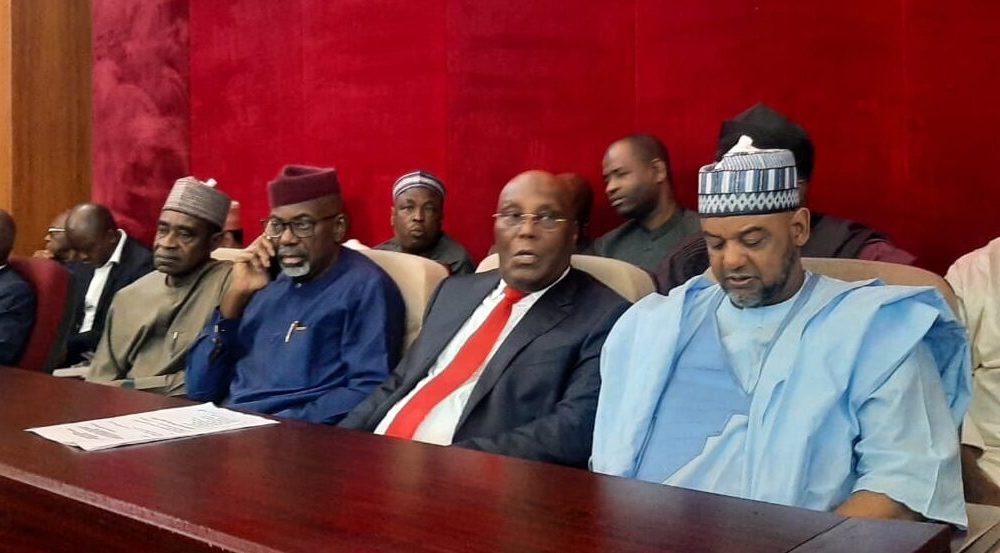 PoliticsAugust 1, 2023PEPC: PDP Atiku Appears As Parties Set To Adopt Written Addresses
PoliticsAugust 1, 2023PEPC: PDP Atiku Appears As Parties Set To Adopt Written Addresses
News
Eid-El-Fitr: ICDA North Central Coordinator Urges Muslim Faithfuls To Abide By Ramadan Lessons
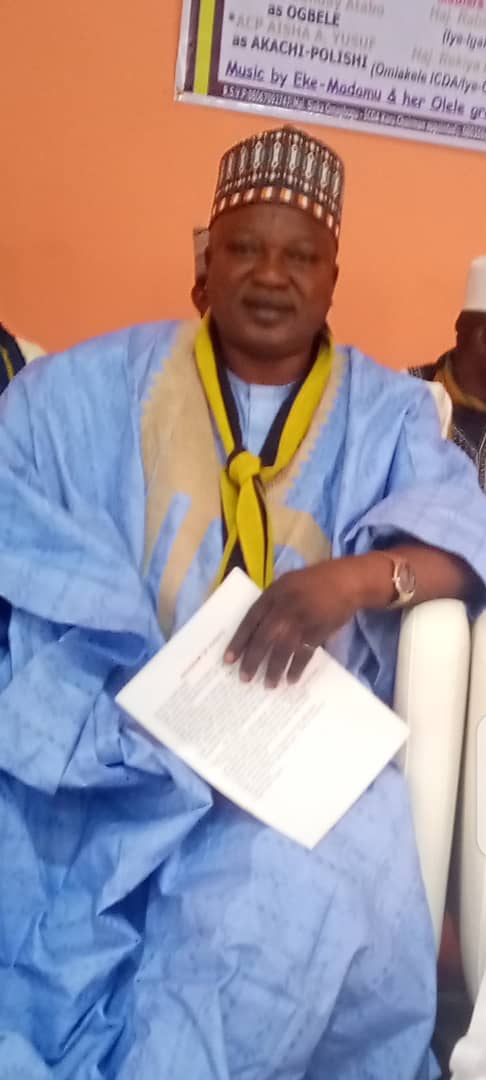
The Igala Cultural And Development Association, ICDA North Central Coordinator, Prince Oruma Musa has sent a message of congratulations to Igala muslim faithfulls in the North-central as they celebrate the eid-el-fitr. push({});
Prince Oruma congratulate Igala muslims as they completed the Ramadan fasting urging them to continue to abide by the teachings during the ramadan fasting.
“The patience and perseverance exercised during ramadan fasting is a sacrifice that will be rewarded with blessings from Allah”, he said.
He further express shock over the sudden death of former governor of Kogi State, Alh Idris Wada son, Mohammed Ibrahim Idris who died after eid-el prayer at his Abuja residence.
The deceased was a former member of House of Representative, represented Omala, Ankpa and Olamaboro in the 7th Assembly.
In a message conveyed by special adviser on media, Prince Abdulrahman Obaje, Prince Oruma said he is deepely saddened by the death of Muhammed.
“On behalf of myself and the good people of the Igala Kingdom, North-central Zone, I wish to express our deep condolence over the death of your son, I am deeply saddened by his death. He is a young Nigerian full of promises for the future of Nigeria”. He said.
He said the death has created a vacuum that will be difficult to fill, urging the family he left behind to take solace in the fact that the late Muhammed live a life worthy of emulation.
He prayed that the Almighty Allah grant the dead eternal rest in Aljanat Firdaos.
He further reiterate his commitment towards the advancement of ICDA , saying that we should all intesify prayers and commitment, while all hands on deck to see that ICDA get out of its current predicament.
Author Profile

- Prince Abdulrahman Obaje is a Media, Information and Computer Technology Consultant. A quintessential Journalist, online marketer, social media strategist, Mathematician and Computer Scientist is based in Abuja, Nigeria. He is the Founder and the Publisher of The Informavores!. You can reach me on +234 805 939 5252 or send i-witness report directly to me on news@informavores.com.ng.
Latest entries
 ArticleApril 24, 2024Preventing Fire Outbreak in Solar Power System Installation – Engr Ohida
ArticleApril 24, 2024Preventing Fire Outbreak in Solar Power System Installation – Engr Ohida PoliticsApril 23, 2024Alleged 80.2 Billion Fraud: EFCC May Loose Case Against Yahaya Bello – Ambassador Danjuma
PoliticsApril 23, 2024Alleged 80.2 Billion Fraud: EFCC May Loose Case Against Yahaya Bello – Ambassador Danjuma NewsApril 11, 2024Eid-El-Fitr: ICDA North Central Coordinator Urges Muslim Faithfuls To Abide By Ramadan Lessons
NewsApril 11, 2024Eid-El-Fitr: ICDA North Central Coordinator Urges Muslim Faithfuls To Abide By Ramadan Lessons NewsMarch 20, 2024Investigative Journalists Group, NGIJ Hails Aderinokun on Appointment as Head of Media at Access Corp
NewsMarch 20, 2024Investigative Journalists Group, NGIJ Hails Aderinokun on Appointment as Head of Media at Access Corp
News
Investigative Journalists Group, NGIJ Hails Aderinokun on Appointment as Head of Media at Access Corp
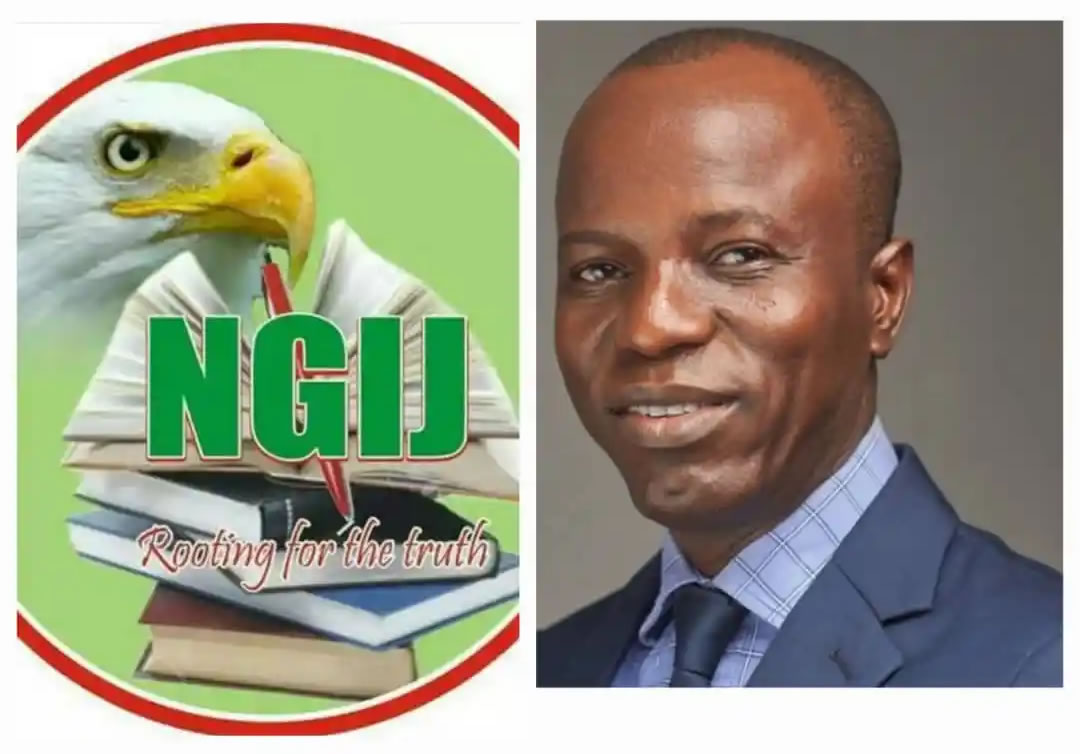
Investigative Journalists Group, the Nigerian Guild of Investigative Journalists NGIJ has extended a warm congratulations to Mr. Kunle Aderinokun on his appointment as the new Head of Media and Public Relations at Access Corporation. adsbygoogle || []). push({});
In a statement released on Tuesday in Lagos signed by Ayoyemi Mojoyinola, the National President and Israel Bolaji, the National Vice President of NGIJ, the guild described Aderinokun as a versatile journalist, banker, business analyst, media expert and arts enthusiast who would bring his rich years of experience to bear on the new role.
“NGIJ recognises the appointment of Mr. Aderinokun as a significant development, as his decades of robust experience across the media and financial industry undoubtedly be a valuable asset to Access Corporation and the nation.
“His extensive knowledge, exposure, intellect and expertise in media and finance make him a well-suited candidate for this position
“The NGIJ is confident that Mr. Aderinokun’s appointment will further to the growth and success of Access Corporation. We look forward to witnessing his impactful contributions to the organisation’s media and public relations endeavours,” the statement noted.
Prior to his appointment at Access Corporation, Mr. Aderinokun held various key positions in prestigious organizations. He began his career at First Marina Trust Ltd as an MIS and Account, followed by a role as an Analyst at Wall Street Trust Company.
Subsequently, he served as a Banking Officer at United Bank for Africa Plc and later founded Pure Synergy. At ThisDay Newspaper Group, he distinguished himself as an Associate Editor and Group Business Editor, responsible for editing and writing compelling business stories and analyses.
Mr. Aderinokun holds a Bachelor of Science degree in Mathematics from the University of Ilorin and a Master of Business Administration (MBA) from the University of Lagos. His educational background, coupled with his extensive professional experience, equips him with a comprehensive understanding of the business landscape.
The Nigerian Guild of Investigative Journalists (NGIJ) is a professional body that promotes investigative journalism, ethical standards, and accountability in Nigeria. The guild comprises seasoned journalists who are committed to upholding the principles of integrity, fairness, and accuracy in their work.
Author Profile

- Prince Abdulrahman Obaje is a Media, Information and Computer Technology Consultant. A quintessential Journalist, online marketer, social media strategist, Mathematician and Computer Scientist is based in Abuja, Nigeria. He is the Founder and the Publisher of The Informavores!. You can reach me on +234 805 939 5252 or send i-witness report directly to me on news@informavores.com.ng.
Latest entries
 ArticleApril 24, 2024Preventing Fire Outbreak in Solar Power System Installation – Engr Ohida
ArticleApril 24, 2024Preventing Fire Outbreak in Solar Power System Installation – Engr Ohida PoliticsApril 23, 2024Alleged 80.2 Billion Fraud: EFCC May Loose Case Against Yahaya Bello – Ambassador Danjuma
PoliticsApril 23, 2024Alleged 80.2 Billion Fraud: EFCC May Loose Case Against Yahaya Bello – Ambassador Danjuma NewsApril 11, 2024Eid-El-Fitr: ICDA North Central Coordinator Urges Muslim Faithfuls To Abide By Ramadan Lessons
NewsApril 11, 2024Eid-El-Fitr: ICDA North Central Coordinator Urges Muslim Faithfuls To Abide By Ramadan Lessons NewsMarch 20, 2024Investigative Journalists Group, NGIJ Hails Aderinokun on Appointment as Head of Media at Access Corp
NewsMarch 20, 2024Investigative Journalists Group, NGIJ Hails Aderinokun on Appointment as Head of Media at Access Corp

